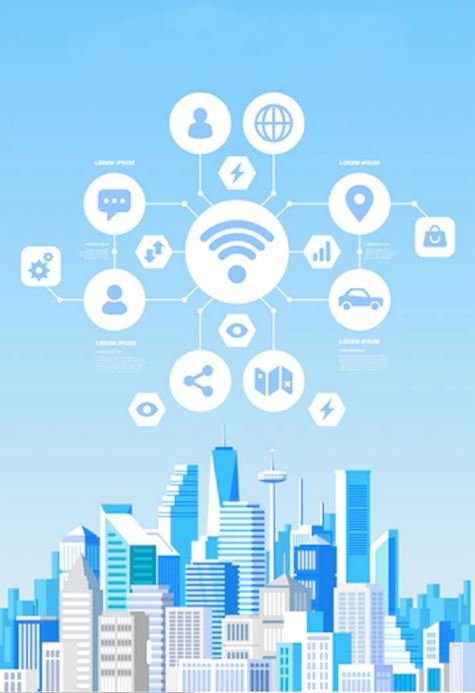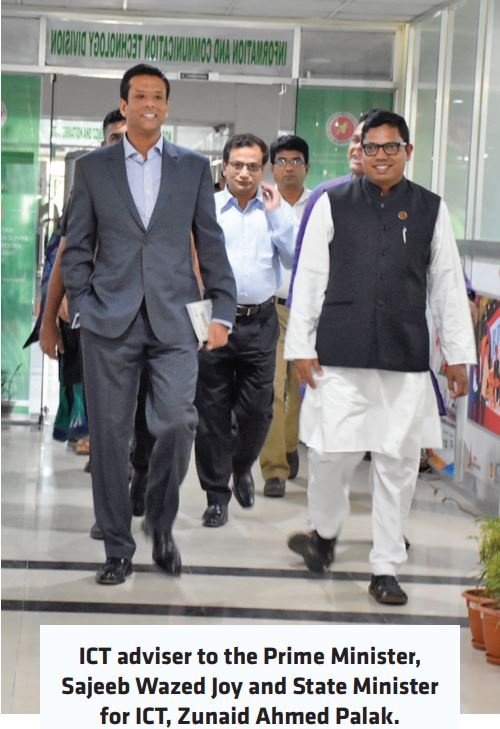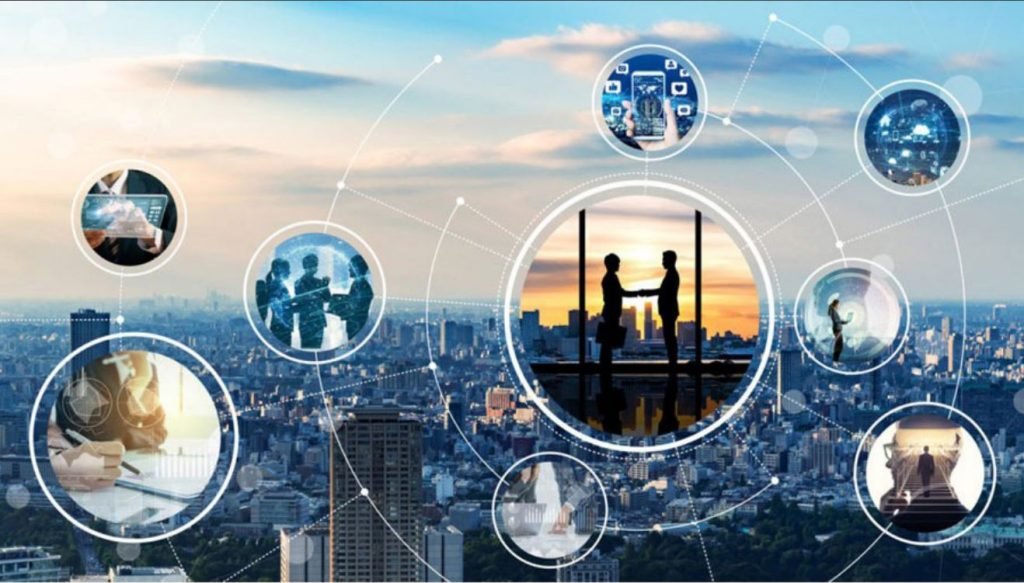Of late, the government has taken initiative to build a ‘Smart Bangladesh’ based on higher economy, advanced technology and greater knowledge by the year 2041. This latest move is an obviously bigger and brighter step aimed at taking the country to the next level upon tasting success with regard to establishing ‘Digital Bangladesh.’ The amount of natural or mineral resources in Bangladesh is less. So, not mineral resources; Smart Bangladesh will be built with the combination of talented generation, uninterrupted power supply and high-speed internet. State Minister for Information and Communication Technology, Junaid Ahmed Palak expressed such hope. The Minister mentioned this while delivering a keynote speech in the second day of Huawei APAC Digital Innovation Congress on May 20. In his keynote titled ‘Digital Bangladesh to Smart Bangladesh: Developing an Innovative Nation’, Palak also pointed out the Smart Bangladesh Vision 2041 and growth opportunities for Bangladesh in next 20 years. During the keynote presentation, he said, “We have achieved Digital Bangladesh Vision 2021, now our goal is to become a Smart Bangladesh– an innovative, knowledge-based advanced economy by 2041. Over the next 20 years Bangladesh will have to cope with rapid transformational shifts in agriculture, education, health, transportation, communication and in the way we work and conduct businesses in this era of Fourth Industrial Revolution- 4IR.” – NASHIR UDDIN and SM TANJIL-UL-HAQUE delve further into the details.
TECH-DRIVEN WORLD AND 4IR
‘Fourth Industrial Revolution’, in short ‘4IR’has reached the doorstep of the world. The invention of sophisticated technology is playing an important role as its foundation. The impact of the fourth industrial revolution is also reflected in the use of technology in the production, marketing and consumption of goods in today’s world.
The fourth industrial revolution is the automated contemporary version of the ongoing production and industrial system using modern smart technology. This revolution marked the epoch of robotics, artificial intelligence, nanotechnology, smart computing, quantum mechanics, biotechnology, super-fast internet, 3D printing, fully autonomous vehicles and other emerging technologies. In the banking and financial services sector also, the wind is changing in the conventional transaction system with the help of technology. The proliferation of digital payment systems instead of cash transactions is on the rise. This fourth industrial revolution is changing the way people think and produce goods and services, while at the same time changing the nature of the earth and the way people live. It goes without saying that the revolution will take place in the near future. Thus, Bangladesh is also planning to successfully participate in the fourth industrial revolution.
Recently, the Covid pandemic has shown the pathway to information technology-enabled services in every segment of lifestyle. It’s an eve moment for approaching towards fourth industrial revolution or 4IR. The running developments of the technology sector in the country can be considered as predatory steps for venturing into 4IR. The tech adaptation among people has increased significantly in the past one and a half years in developing economies including Bangladesh. From public to private sectors, the executives and workers tested a new experience going through a transformation in workspaces. During the pandemic outbreak, E-commerce and E-Learning came into focus with popularising trend of ‘staying at home’. Country’s policy makers claimed that the technology helped them to keep the commercial activities active through e-commerce. E-learning or distant education helped the institutes to run academic programs virtually.
BANGLADESH’S STANCE IN TECHNO-BASED WORLD

The journey of Bangladesh towards a technology-driven economy began in 2008 when Prime Minister Sheikh Hasina formulated the ‘Digital Bangladesh’ vision as a manifesto ahead of parliamentary elections. ICT adviser to the Prime Minister, Sajeeb Wazed Joy has been guiding the plan from the policy perspective.
The Bangladesh government’s ICT Division has implemented and are continuing to implement multi-focused projects to develop skilled re – sources for creating knowledge economy. Sheikh Hasina Institute of Frontier Technology, Sheikh Kamal IT Incubator, Sheikh Russel Digital Labs, Schools of Future, National Intelligence for Skills, Employment and Entrepreneurship, ad – vanced labs, Digital Leadership Academy and Leveraging ICT for Employment and Growth are among the notable initiatives. The government has undertaken various pro – grams to take the new generation of the country further forward in information technology. The government has already implemented ‘Digital Bangladesh’. Now the country is moving towards the establishment of ‘Smart Bangladesh’.
BUILDING SMART BANGLADESH
It has been decided to implement 14 action plans to implement the government’s next vision ‘Smart Bangladesh-2041’. And these decisions came from the third meeting of the ‘Digital Bangladesh Task Force’. Prime Minister Sheikh Hasina was present on the occasion, where the Prime Minister outlined the future of Bangladesh after Digital Bangladesh.
The Prime Minister has already signed the working paper of the meeting with 14 decisions for the implementation of Smart Bangladesh. State Minister for Information Technology Junaid Ahmed Palak presented ‘Smart Bangladesh Vision-2041’ at the meeting, where he said that the implementation of digital education, digital healthcare, digital agriculture, etc. has been ensured under the Digital Bangladesh 2021 vision, just as the main components under ‘Smart Bangladesh-2041’ will be smart-education, smart-healthcare, smart-agriculture, smart-commerce, Smart-transport etc. This ‘Smart Bangladesh Task Force’ will be formed under the leadership of Prime Minis – ter Sheikh Hasina with the vision of Smart Bangladesh-2041. Succeeding detailed discussions, the following decisions were taken to implement Smart Bangladesh by 2041:

1.Establish Bangladesh as a knowledge based economy and innovative nation. It will be implemented by the country’s information technology department.
2.Undertake self-employment based training activities under the Digital Inclusion for Venerable Exceptions (Dive) initiative to build an inclusive digital society and bring backward marginalised people into the mainstream of development. It is the responsibility of the IT department to implement.
3.Continuing laptop support activities for students under ‘One Student, One Laptop, One Dream’ to ensure online activities of students. It will be implemented by the Department of Secondary and Higher Education, the Department of Madrasa and Technical Education, the Ministry of Primary and Mass Education and the Department of Information Technology.
4.Establish Digital Leadership Academy to build smart and ubiquitous government. The Department of Information Technology will implement it.
5.Prepare enterprise based businesses as investment-friendly start-ups to contribute to the GDP of small, cottage, small and medium enterprises. The Ministry of Industry, the Ministry of Commerce and the Department of Information Technology will implement this initiative.
6.Establish Interactive School for Start-up Educators of Tomorrow (Asset). Bangladesh Computer Council will implement it.
7.Construction and management of Bangladesh Knowledge Development Park. It will be implemented by the Hi-Tech Park Authority.
8.Establishment of Centre for Learning Innovation and Creation of Knowledge (CLICK). Bangladesh Computer Council will implement it.
9.Establishment of Agency for Knowledge on Aeronautical and Space Horizon (Akash). Department of Information Technology are going to implement it.
10.Establishment of Self Employment and Entrepreneurship Development (SED) Platform. It will be implemented by the Hi-Tech Park Authority. Establishment of Content Engineering and Link – age Lab (Cell). The Department of Information Technology will implement it.
11.Create government service and infrastructure based entrepreneurs in the Service Aggregator Training (SAT) model. Bangladesh Computer Council will implement this initiative.
12.Bring all digital services to a centrally integrated cloud. It will be implemented by all ministries and departments.
13.Data Security Act, Digital Service Act, Sheikh Hasina Institute of Frontier Technology (Shift) Act, Innovation Design and Entrepreneurship Academy (Idea) Act, Agency for Knowledge on Aeronautical and Space Horizon Law, and Digi – tal Leader initiative; these issues will be implemented by the Department of Legislative and Parliamentary Affairs and the Department of Information Technology.
Commenting on the third meeting of the ‘Digital Bangladesh Task Force’, Junaid Ahmed Palak said, ‘On March 20, Sajeeb Wazed Joy, IT Adviser to the Prime Minister, asked for a strategy or outline of Smart Bangladesh. The concept paper of Smart Bangladesh has been presented at the meeting of Digital Bangladesh Task Force with the advice and guidance of the Prime Minister’s IT Adviser to build Smart Bangladesh by 2041. Which the Prime Minister has chosen. ‘
State Minister for Information and Communication Technology Junaid Ahmed Palak has said that high-tech parks will be the main economic driving force in building a modern and smart Bangladesh. The state minister said, “Under the wise and far-sighted leadership and timely supervision of Joy, the architect of Digital Bangladesh, we have been able to implement Digital Bangladesh on these four strong pillars of efficient human resource creation, affordable internet services, digital services and technology development in just 13 years.” The first condition of this digital Bangladesh was to build skilled human resources. Bangladesh is moving forward on the path of development with the aim that the youth of this country should not only be educated in certificate-based education but also become skilled human resources in technical education. Prime Minister Sheikh Hasina is constructing 92 high and small high-tech parks all over the country including 12 high-tech parks at the district level.

PRIORITISING YOUTH
The number and activity of high-tech parks in Bangladesh is on the rise, and the presence of young people is increasing. Palak said that the high-tech park will support a large number of young people rurally. The construction work will be completed within a year. One thousand youths will be trained here every year. In addition, three thousand youths will be directly employed in the park. They will be able to work in big American companies from their areas.
The ICT department is arranging training for the youth to build a skilled manpower by mixing creativity with technology. As part of this, it has been decided to set up a Motion Graphics Animation Lab at Dhaka University and another Motion Graphics Animation Lab at ICT Tower at a cost of Tk 8 crore in a few days. In this regard, the state minister said, “We will set up this state-of-the-art motion graphics lab to promote skill-based education, not certification, where everyone will have access. Any young person can create the game of his dreams while sitting in that lab.” He assured that the ICT department will help them to create world class games from here so that they can lead the gaming world. Noting that the gaming industry is now bigger than the Bollywood industry, Palak said the ICT industry is the most important industry in diversifying trade to raise the average income of Smart Bangladesh to Tk 12,000, and the youth are its main driving force. Therefore, we have focused on the gaming industry as well as the implementation of skills development projects to generate 5 billion in export revenue and create employment for 3 million young people by 2025. As part of this, we are going to create labs to give mobile games and app developers the opportunity to create world-class games.

POINTS TO PONDER
Although the government has been planning to build a “Smart Bangladesh” by the year 2041 by developing the IT sector and even declaring the current year as the year of IT products, the proposed budget did not reflect proper plans to help the private sector participate in the effort. On the contrary, the budget proposed to impose a 15% value-added tax (VAT) on the crucial components of the growing IT sector, such as; laptops, as well as printers, toners etc. Moreover, internet services have not been included in the list of IT Enabled Service (ITES) despite being the primary ingredient of Digital Bangladesh, which would have exempted Internet Service Providers (ISP) of 10% advance-income tax (AIT) making broadband services much cheaper. Industry insiders think the moves will not only increase the cost for both traders and consumers but would also hamper the automation of business and other processes in the country. Finance Minister AHM Mustafa Kamal also proposed an additional 10% supplementary duty on import of optical fibre cables in proposed budget for FY22-23. Optical fibre cables are one of the main elements of the broadband internet. With the prices of imports going up, the cost of broadband internet will also likely witness a hike.
To wrap up, as Bangladesh’s attention has recently switched to the technology sector, which is the driving force behind transformation into Smart Bangladesh, powered by a knowledge economy, the country should properly plan and manage its budgetary allocation which is crucial for taking the country to next level.


